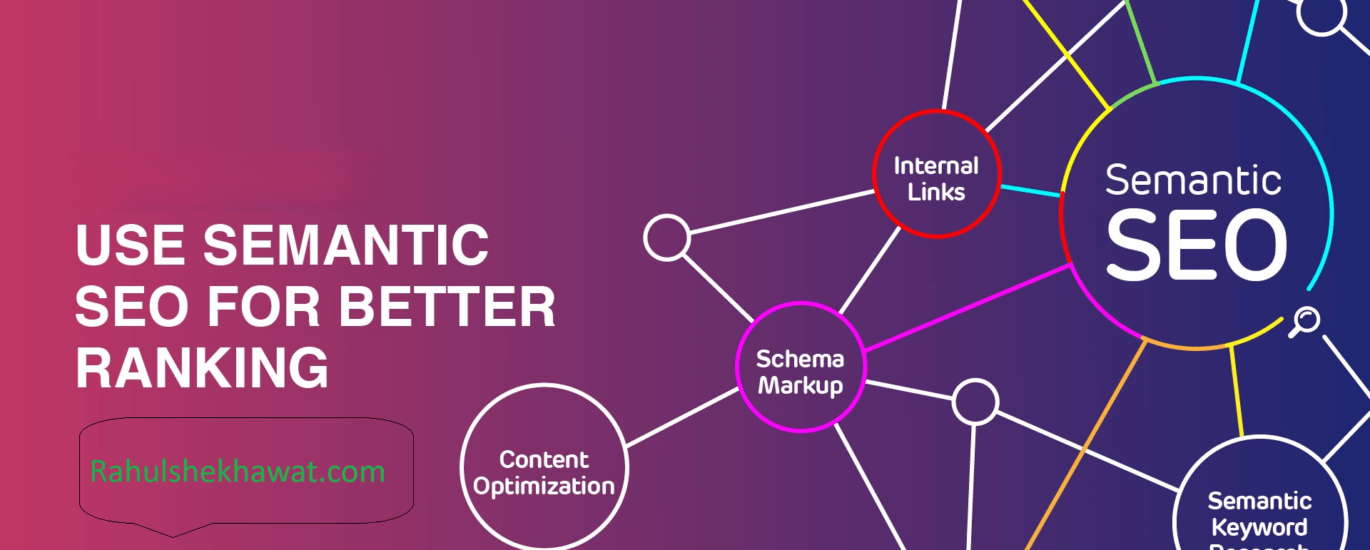


This article is EEAT-driven, future-proof, and speaks directly to SEO professionals looking to stay ahead in the game.
SEO has evolved significantly from simple keyword stuffing to context-driven search intent optimization. With Google’s AI-driven algorithms, traditional keyword-based SEO is no longer enough to rank on Page 1. Instead, search engines now focus on understanding topics, relationships, and user intent—a shift that has made Semantic SEO the future of search.
Rahul Shekhawat, an one of the best SEO consultant in Delhi NCR, says:
“SEO is no longer about individual keywords; it’s about intent, relevance, and relationships between concepts. Brands that understand and implement Semantic SEO will dominate search rankings in the future.”
SEO has evolved significantly from simple keyword stuffing to context-driven search intent optimization. With Google’s AI-driven algorithms, traditional keyword-based SEO is no longer enough to rank on Page 1. Instead, search engines now focus on understanding topics, relationships, and user intent.
Rahul Shekhawat, an SEO consultant in Delhi NCR, says:
“SEO is no longer about individual keywords; it’s about intent, relevance, and relationships between concepts. Brands that understand and implement Semantic SEO will dominate search rankings in the future.”
LSI (Latent Semantic Indexing) was once considered the holy grail of SEO, helping search engines understand related words and context within content. However, modern Google algorithms do NOT use LSI explicitly. Instead, Google relies on advanced NLP models, machine learning, and AI-driven understanding of content relationships.
Semantic SEO focuses on:
✅ Understanding search intent rather than just matching keywords
✅ Using entities, relationships, and context to create authoritative content
✅ Optimizing for Google’s NLP algorithms (like BERT and MUM) to improve rankings
1️⃣ Google’s NLP (Natural Language Processing) and BERT
2️⃣ The Role of Entities, Context, and Relationships
3️⃣ Topical Authority and Content Hubs
“In 2025 and beyond, SEO will be won by those who focus on search intent and topic depth. Google rewards content that fully answers a user’s query, not just content with the ‘right keywords.’ If you’re not optimizing for semantic search, you’re already behind.” — Rahul Shekhawat
| Factor | LSI Keywords 🏴☠️ (Outdated) | Semantic SEO Keywords ✅ (Future-Proof) |
|---|---|---|
| Definition | Related words that Google understands through LSI | Words, phrases, and entities related to search intent |
| Google Usage | No longer used by Google | Actively used in Google’s AI-driven search ranking |
| Example | “Buy laptop, purchase laptop, laptop sale” | “Best laptop for students, budget gaming laptop, MacBook alternatives” |
| Optimization | Adding synonyms & keyword variations | Focusing on topic relevance, relationships & user intent |
🔹 1. Topic Clusters & Content Hubs
🔹 2. Optimizing for Google’s Knowledge Graph
🔹 3. Internal Linking & Contextual Optimization
✔ AI & NLP Will Make Search Smarter – Google’s algorithms will increasingly focus on user experience, topic depth, and natural language understanding.
✔ Voice Search & Conversational AI – More users will search using natural, conversational queries. Semantic SEO will ensure your content appears in featured snippets.
✔ Google’s MUM Algorithm (Multitask Unified Model) – Google can now understand complex queries and provide comprehensive answers, making topic-driven content essential.